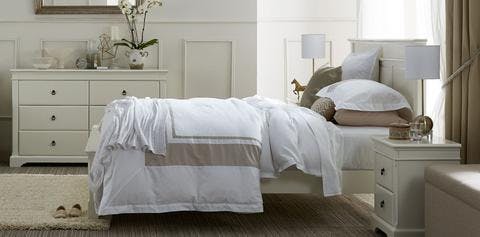Rise with the birds and put a smile on your dial!

We’ve all heard about it, read about it, know someone who knows someone….We’re talking about those people who rise with the lark, or the sun, (whichever comes first) and do it with ease. What’s more, apparently they do it with a smile on their face! Well, don’t be disheartened if that’s not your natural disposition. According to The Body Clock Guide to Better Health only 1 in 10 people is a true morning person, while 2 in 10 are night owls and the rest of us are somewhere in the middle(1). Unfortunately though, most of us don’t get to choose the time we roll out of bed.
1. Set yourself a schedule
Before getting up early, you have to go to bed right? Makes sense, but many of us don’t have a planned bed time hour. Without an intention, it’s easy to busy yourself and end up going to bed way later than you should. So to avoid a late bed time, start thinking about things that keep you awake, such as technology, and dedicate a time to turning it ‘off’ such as 8:30pm. Then the rest of the schedule can be as easy as;
9:30pm - start getting ready for bed
10pm - get into bed
10:30pm - lights out
6:30am - wake up after 8 hours of sleep
2. Think about what you’re eating & drinking before bedtime
Firstly there’s the obvious stuff - don’t go to bed too hungry or too full. Feeling uncomfortable is never a good way to get off to sleep. Avoid caffeine in the late afternoon and evening, the stimulating effect could prevent you dozing off. And too much alcohol can disrupt sleep later in the night - you’re unlikely to spring out of bed after a restless night.
But more importantly you ask, are there foods you should or shouldn’t be eating that can help have a better nights sleep? Try eating foods that help the brain/body make serotonin and melatonin (the body clock hormone that sets your sleep-wake cycles). Walnuts, cheese, yoghurt, milk, cherries, chickpeas, green leafy vegetables and foods that are high in vitamin B6 such as tuna, salmon and pistachio nuts are all examples according to Reader’s Digest.
3. Wake up to natural light
If you are not naturally bright eyed and bushy tailed first thing in the morning, try stepping outside or having your coffee by a bright window as soon as you wake up. Exposure to daylight in the morning can make you more alert earlier in the day. Additionally, you can sleep with your blinds or curtains open so that daylight awakens you naturally. The light is not as abrupt as an alarm clock so is less likely to annoy you. Having said that, it’s probably a good idea to set that alarm clock anyway….just in case you’re prone to pulling the covers over your head!

4. Enjoy the time in the morning by being prepared
Rather than spending the extra time in the morning running around packing bags, preparing lunch and so on, do what you can the night before. That way you can enjoy the time with yoga and meditation (if that’s your vibe), exercising….or sitting down with a cup of coffee. Research shows that doing something positive first thing in the morning makes you far more likely to enjoy the rest of your day.
5. Be comfortable
Finally, ensure your bedroom is a comfortable space to sleep in. Sounds obvious right, but noise, light or a stuffy room can make it difficult to drift off and can have you waking during the night. Ear plugs or white noise can be useful tools to shut out unwanted noise (as long as it’s not noise you need to respond to like your little one!)
Being in a comfortable environment also refers to your visual surroundings - ensure your bedroom style is one that helps you feel restful, calm and happy. Think about what affects this bedroom style - your wall paint or wallpaper colour, the pattern on your rug and of course your bedding! Work with your favourite colours, patterns and textures to help make you content. Change it up occasionally with different linen or by introducing a splash of colour with a feature cushion. After all, every day starts from our bedroom - it should be a happy place!
Well there’s no time like the present...start your preparation, head to bed early tonight and set your alarm for sunrise!
